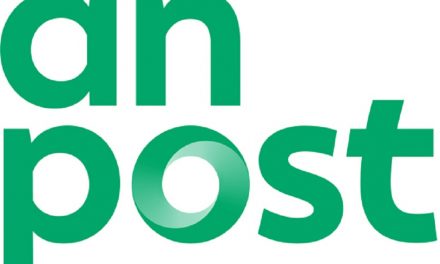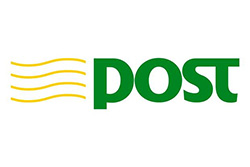
An Post takes centre stage in Irish payments
The Irish postal services company, An Post, will assume control of over-the-counter bull payments services from the banks in the next three months under an agreement announced by the government in April. This initiative is part of a bank-inspired, government-approved strategy to make basic payments more accessible and affordable for consumers. But will consumers be the winners? Anthony O’Brien reports The banks, with the exception of Ulster Bank, a member of the Royal Bank of Scotland group, are to withdraw from over-the-counter bill payments from July 2001. An Post will provide an expanded over-the- counter bill payments service at 1,900 post offices throughout Ireland. One thousand of these post offices will handle payments electronically while the remaining 900 will deal with payments manually and have them processed electronically at a central location. The service will be free of charge to consumers, but An Post will negotiate a transaction fee with each utility customer. Consumers will be able to pay in cash, by cheque or with the Laser debit card. Prior to this agreement, An Post was already offering payment services for billers such as the telecommunications companies, Eircom and Esat (including their mobile divisions), cable companies, gas supply companies and some local authorities through its BillPay service. The decision by the banks to withdraw their services will result in between five and seven million transactions being added to post office payments per year. The idea behind the initiative is to make it easier for consumers to pay their bills and to provide much needed revenue for An Post. Mary O’Rourke, the Minister for Public Enterprise, said the alliance between the banks and An Post would lead to the formation of a new company that would streamline bill payment facilities in the Irish market, leading to the creation of 50 jobs at a processing centre in Kilrush, Co Clare. An Post already employs about 30 people in its BillPost unit in Kilrush which processes bill payments by post for some billers. “The new company is in part a development from the national payments strategy,” said O’Rourke. “It has the potential to become a European centre of excellence in payment processing services for other markets. Further on, it provides the capability of providing many other electronic-based services in the future.” The National Payments Strategy arose out of a 1998 proposal to government from Allied Irish Banks (AIB) and Bank of Ireland that a group be established to examine the payments system. Formal proposals were made to government by the Irish Payments Services Organisation (IPSO). This body was established by the banks in 1998 and was given responsibility for money transmission services at industry level, in October 1999. The proposals had two key elements: an utility bill payment scheme that would reduce costs by facilitating aggregate bills and the delivery of bills by e-mail and by truncating the bill payment process; a universal payment account. This would be available to each adult on a non-competitive basis. The accounts would be managed, possibly by an arm of the state, on a not-for-profit basis. Access to the accounts would be card-based, via ATMs and retailer PoS terminals. The accounts would be financed by charges levied for social welfare or salary payments made to the accounts. A working group has been established within the Department of the Taoiseach (Ireland’s prime minister), and discussions are ongoing with the IPSO, the banks and An Post to develop the concepts further. An Post has become increasingly involved in payments as it searches for alternative sources of income to fund its large, inefficient branch network, especially in light of the proposed liberalisation of postal services in the European Union. Although the organisation is committed to maintaining a large network, more than half of the sub-post offices handled less than one third of the average number of transactions per office in 1998. An Post has two main elements to its payments business, neither of which have proven very profitable. It is contracted by the Department of Social, Family and Community Affairs as the principal agent for welfare payments. It handled some 44 million welfare payments in 1999, down 5 percent on 1998, with a further drop of 5 percent predicted for 2000. The government extended its contract in 1999, without putting it out to tender, until the end of 2002. This decision has been appealed to the European Commission. Some 10.7 million bill payments were made in post offices through the BillPay service in 1999, up 8.6 percent on 1998. The company also operates an EBPP service, BillPay.ie, that allows consumers to pay bills online for free. This source of income is also threatened by biller pressure to reduce fees. According to a report commissioned by the Department of Public Enterprise in 2000 by Phil Flynn: “The single biggest customer in this area is Eircom which accounts for 5 percent of the overall Post Office Division business. The company has been under pressure to either reduce its fees or be faced with the total loss of the business. Eircom piloted an alternative payment system and made clear its intention to totally withdraw the business from the Post Office Division unless reduced fee arrangements were agreed.” Flynn also pointed out that An Post had failed to win other big customers such as the national electricity supplier, ESB, saying: “It is clear the ESB is resistant to permitting its bills to be paid through Post Offices Division of An Post. The cost of the service is a major factor for them – combined with the potentially negative impact such a move could have on the retail operation of ESB shops.” This initiative will therefore be welcomed by An Post as it gives it a stronger hand in negotiations with billers. Efforts to maintain and develop the post office network are in sharp contrast to the determination of the banks to downscale and to reduce the basic services offered to consumers. The main banks are engaged in a concerted programme of bank closures and automation of remaining branches, with customers actively discouraged from approaching bank tellers. At the forefront of these efforts are AIB and Bank of Ireland, the country’s largest banks. The banks also introduced restrictions on the encashment of cheques, which remain a popular form of salary payment. The new procedures require that cheques be lodged to an account. The restrictions do not affect some government payments. The banks insist these developments reflect a move to electronic, rather than paper-based, payments, and not a case of stepping back from payments altogether. “The banks are, and will continue to be, heavily involved in the payments industry,” said John Kelly, retail systems payment systems co- ordinator at IPSO. “However, they are very anxious that Ireland comes more into line with its European partners and endorses the most efficient and effective methods of processing these payments. These methods are obviously electronic, and would allow people to make their utility payments by direct debit or by telephone banking or by internet banking. Most banks have these options already in place. Payment by electronic means is very much the norm in Europe. Manual, over the counter utility payments are gradually being replaced by their electronic counterparts.” The government has, however, committed itself to opening up access to banking services. Martin Cullen, Minister of State at the Department of the Taoiseach, explained in April 2001 that the government would appoint a regulatory to safeguard consumer interests: “The Government has decided to establish the Irish Financial Services Regulatory Authority as a single regulatory authority for the financial services sector. It will be appropriate for the new authority to consider the recommendation of the report on access to banking services. As it will combine the different aspects of regulation in one organisation, it will be in a position to consider the matter both from the customer’s perspective and in terms
of the overall banking system. It is the intention that the new authority will be established as soon as possible. I hope it will be the beginning of 2002.” ISSN 0954-0393; Page 6 Copyright 2001 Lafferty Publications Ltd © 2001 Resp. DB Svcs. All rts. reserv.
$$ELECTRONIC PAYMENTS INTERNATIONAL, 30th April 2001












